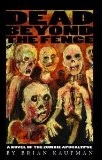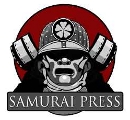Dead Beyond the Fence
 What a wretched story this is. I do not say, “What a wretched book this is,” because it isn’t terrible. Brian Kaufman’s writing, while burdened with too many overwrought metaphors, is at least competent, and the book has been properly edited. As a construction, as an example of the craft of writing, it is at least a decent novel. It is, however, a thoroughly awful book, which features not one but two chances to disappoint the reader.
What a wretched story this is. I do not say, “What a wretched book this is,” because it isn’t terrible. Brian Kaufman’s writing, while burdened with too many overwrought metaphors, is at least competent, and the book has been properly edited. As a construction, as an example of the craft of writing, it is at least a decent novel. It is, however, a thoroughly awful book, which features not one but two chances to disappoint the reader.
Spoilers follow, so don’t keep reading if you don’t want to learn things ahead of time. Kaufman writes, in his introduction to the novella appended to Dead Beyond The Fence, that many readers wondered what came after his hanging ending. Mr. Kaufman seems to think that the ending — murder-suicide by the protagonists — is the obvious conclusion to a story that ends with the hapless pair looking out over an uncertain (or certainly doomed) future. The problem with Kaufman’s conclusion is that it’s an author’s conceit; he didn’t write it well enough for the book to imply such an ending, nor would such an act be consistent with the character to whom he’d like to attribute it.
The book itself is fairly unremarkable but entertaining enough. I dislike Kaufman’s repeated use of the word “shambler” to replace “zombie.” He apparently finds the latter term trite or silly, but seeing “shambler” over and over again just proves distracting to a reader who’s accustomed to the zombie genre. Substituting the term is another conceit on Kaufman’s part — or an attempt to innovate that simply doesn’t work.
The relationship (and the complexity of that relationship) between Kaufman’s protagonists is well done, and he does explore some of the psychological effects of coping with a zombie — excuse me, “shambler,” ugh — outbreak. I liked that much of the book, and the opening sequences of the first chapter took and held my interest. The characters our protagonists meet later in the book aren’t as well drawn and come across like impossibly foolish caricatures. I hate to think a group of left-leaning academic twits would be among the only survivors of a living dead holocaust, but stranger things have happened. When our gaggle of liberal morons manage to destroy themselves, it’s not a surprise — although there’s a nice call-back to this in the novella, Dread Appetites, that is appended to Dead Beyond the Fence.
This brings us to the novella. If the story’s original ending was disappointing (or at least unresolved), Dread Appetites leaves a lingering sense of resentment in the back of the reader’s brain. It’s as if Kaufman sat down and asked himself what the most awful, tasteless act or acts he just might include in a horror novel could truly be, then wrote to contrive such an ending.
There’s an art to writing apocalyptic fiction well. If the scenario is no-win, there should at least be a compelling reason why the protagonists cannot succeed. If they fail through no fault of their own or because there was never any point in trying to survive, the reader is cheated and made to feel his or her time has been wasted. That is the real tragedy of Dread Appetites, which ruins Dead Beyond the Fence more thoroughly than the novel’s competent but unfulfilling mediocrity ever could. There is little point to Dead Beyond the Fence, but it is at least entertaining; there is less point to the novella that follows, and it is offensively, stupidly forced for shock value.

